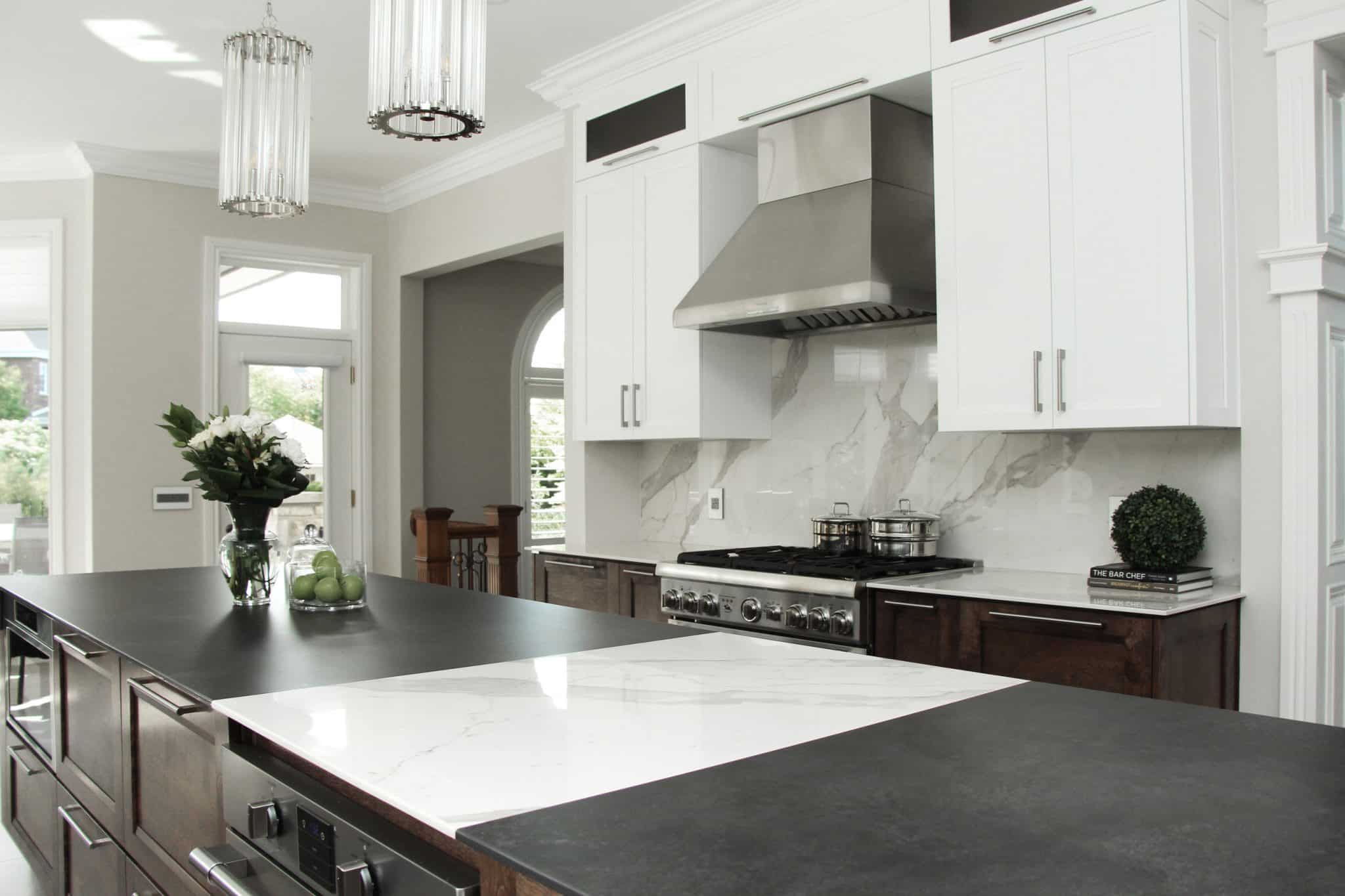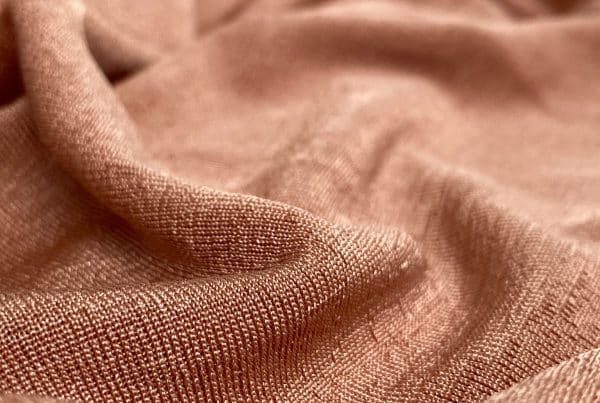When deciding which countertops to install in your home or business, there are a few factors that need to be considered. For example, how the material will fit into your design layout, how much it will cost, and how its durability will cause your countertops to wear over time.
Of course, certain countertop materials will fare better than others when it comes to sustaining damage. So, you may wonder: what is the most durable countertop on the market?
According to many experts, quartz is considered to be the most durable countertop material currently available. However, to understand why, we need to look at how durability is determined and how quartz measures up. Let’s take a look below!
If you’re opening a coffee shop or business and you’re wondering what the best countertop material is, for more information, check out this post.
How is the durability of a countertop measured?
The way the durability of countertops is measured is broken down into five categories: hardness, heat resistance, crack resistance, warp resistance, and stain resistance.
Each type of countertop material will excel more in some of these categories than in others, so the goal is to find the right balance of durability for your specific needs.
Let’s break down these categories more below:
Hardness
Hardness is measured by the way countertop materials react to certain surface damages. If a countertop doesn’t easily sustain scratches, dents, and chips, it’s considered a hard material.
Resistance to heat
Another important category in measuring durability is how your countertop materials react to heat. If you can set a hot pot or pan on a countertop without burning the surface, it’s considered heat resistant.
Cracking
While certain countertop materials retain a high level of hardness, they may still be susceptible to cracks. In contrast, some countertops that can be easily scratched or dented actually have a difficult time sustaining this type of damage and are considered crack-resistant.
Warping
A durable countertop will be less likely to experience warping, a distortion that can occur from a change in temperature. This is most common in countertops made from wood or laminate.
Stain resistance
Lastly, stain resistance is another factor in determining the durability of your countertops.
Countertops that are made from porous material are more likely to absorb liquid and bacteria, resulting in discolouration, while more durable countertops can be easily cleaned of these substances.
Now that we know how to measure the durability of countertop materials, let’s take a look at how quartz, the most durable countertop on the market, ranks in these categories.
How quartz ranks in the five durability categories
Quartz is a very popular countertop material for kitchen and bathroom designs. This material is manufactured from quartz minerals and resin and is designed to mimic the look of marble and granite.
However, quartz is not just a beautiful stone that fits many design aesthetics, but it’s also incredibly durable and can withstand many damaging effects.
Let’s examine this in further detail as we consider where quartz ranks in terms of hardness, heat resistance, crack resistance, warping, and stain resistance:
Hardness
Quartz ranks quite high on the hardness scale, as it is resistant to scratches and other surface damage of a similar nature.
Therefore, quartz is a great choice for kitchen countertops, as homeowners won’t need to worry about sharper objects like metal utensils or knives damaging the surface.
Resistance to heat
Quartz is resistant to heat, being able to handle up to 150 degrees Fahrenheit. So, if you place something warm on the surface of your quartz countertops, it won’t cause any damage.
That said, if you’re handling a pot or pan that is hotter than 150 degrees, placing it on your quartz countertops will likely result in a burn mark.
Fortunately, burn marks on quartz countertops can be removed by a professional, so if you accidentally place a hot pan on the surface, the damage can be rectified.
Cracking
In addition to being resistant to scratches, quartz is also crack resistant. In order for a quartz countertop to crack, it would either need to be hit with quite a bit of force or exposed to extreme temperatures.
Therefore, homeowners can easily perform tasks like chopping on cutting boards without worrying that their quartz countertops are cracking from the pressure.
Warping
Homeowners can rest assured that quartz countertops aren’t susceptible to warping. Because quartz is not a porous material, it doesn’t absorb liquid, which is the main cause of the warp effect.
Rather, warping is more common with butcher block or laminate countertops, as those materials are much more porous than quartz and, therefore, more liquid absorbent.
Stain resistance
Finally, quartz countertops rank quite high in regard to stain resistance. Certain high-pigment foods like turmeric powder will cause a residual stain if not cleaned immediately, but most food spills won’t be a cause for concern, provided your quartz countertops are being properly cleaned.
As we can see, quartz countertops rank quite high when it comes to their durability. They aren’t overly sensitive to surface-level damage, such as scratches, dents, and stains, and are reasonably resistant to more serious damage, like stains and burns.
Of course, as we touched on above, quartz countertops aren’t completely invulnerable and need to be properly cleaned and maintained to retain their durability. Let’s examine how to do this below:
How to properly care for quartz countertops
One of the benefits of installing quartz countertops is that they aren’t difficult to look after. Unlike more natural materials such as marble and granite, quartz countertops don’t require any routine sealing or professional cleaning.
To look after quartz countertops, follow the below instructions.
Cleaning
Quartz countertops only require very basic cleaning products. For fresh spills that haven’t had a chance to dry, simply wipe up the mess with a clean cloth and a mild dish soap.
For dry spills or stains, use a non-ammonia-based surface or window cleaner and a non-abrasive sponge to scrub the surface.
Daily cleaning of your quartz countertops only requires a simple wipe with a dampened cloth. However, for a deep clean, coat the surface of the counter with one of the cleaners mentioned above and let sit for about ten minutes before wiping it down with a sponge.
Avoid using any cleaners that are acid or alkaline-based, and only use cloths and sponges that are non-abrasive. The use of these products can strip and dull the surface of your quartz countertops.
If, however, one of these substances comes in contact with your countertops, make sure to immediately and thoroughly cleanse the surface with water.
Final words
Among the many options available for countertops, quartz is certainly the most durable choice. If you follow the maintenance methods above, your quartz countertops will maintain their lovely, marble-like appearance and texture, as well as their strong durability, and will be a feature element of your home or business!








